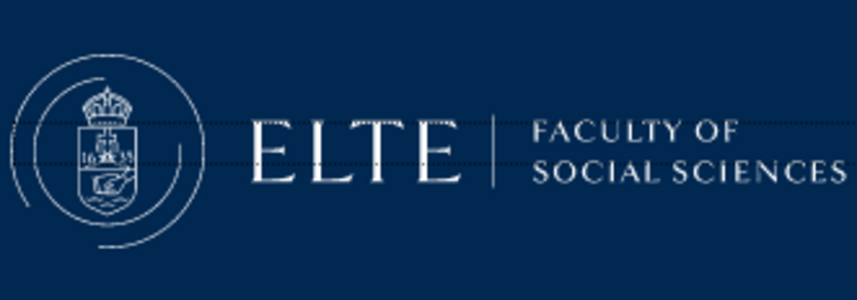
Department of Global and Development Studies, Eötvös Loránd University (ELTE)
Faculty of Social Sciences
The Department of Global and Development Studies was established in 2023, as an organizational unit within the Institute of Political and International Studies at the Faculty of Social Sciences of Eötvös Loránd University.
It is the first university department in Hungary that focuses on development studies with a global scope. We are joining an interdisciplinary scientific field of rising recognition and popularity worldwide, and our department aims at becoming a teaching hub on the matter in Hungary, as well as a coordinator of related scientific work. We attempt to observe global and development-related processes with a consciousness of our specific Hungarian and Central European position.
Our understanding of “development studies” as a multi- or interdisciplinary study area encompasses the following approaches:
1. Theoretical approach: We focus on the analysis of global processes and their systemic effects or relation to development. Therefore, we draw from Theories of Culture, Theories of Globalization, Development Economics, International Political Economy, Critical Theories (most importantly, Postcolonial Theory) and Cultural Studies, among many other streams of thought. We embrace a self-reflexive and cross-cultural understanding of the concept of development.
2. Thematic approach: We observe many contemporary global issues, that have a differentiated effect on countries and regions of the Global South, including the dilemmas of sustainability, the impact of climate change, the causes and effects of migration, the transformation of global value chains, the influence of multinational companies, etc.
3. Regional approach: Our focus is on “developing” regions (Africa, Latin America, Middle East, South/East Asia, and to some extent, Eastern Europe), but we apply this notion in a critical and reflected manner. The study of marginalized groups in “developed” regions (Native Americans, Roma, immigrant communities) is also very relevant for us. Transitology (the study of the processes of democratization or de-democratization), as well as the analysis of the dependent integration of these regions to the world economy are also in the focus of our studies.
4. Policy approach: We analyse and evaluate policies aimed at reducing poverty, improving the standards of living, promoting sustainability, social inclusion and mobility etc., including the effectiveness of international aid, as well as programmes for improving public health, education, gender equality, local and community development, environmental sustainability, etc. We observe the impact of policies on the local, national, and supranational (European Union, United Nations etc.) level, as well as on the level of interregional cooperation (EU-Africa, EU-Latin America cooperation etc.).
5. Methodological approach: Given the host of theories, themes, and regions scholars from the Institute engage with, we are committed to a variegated palette of methodological tools. We encourage and support cross-disciplinary experimentations and seek to avoid methodological orthodoxy. We are open to use case studies, analysis of existing development projects, as well as non-scholarly sources of information such as art or films to better understand local contexts of development.
6. Transformative approach: Our objective is to be agents of positive change in the topics that we analyse. We seek to understand and promote emancipatory, empowering, and community-led forms of development. In our teaching activities, we endeavour to build teacher-student relations based on mutual learning. In our external relations, we are offering platforms of cooperation with civil society organizations, such as “science shops” or other forms of joint thinking and acting.
The department’s teaching profile is linked to the International Relations BA and MA programmes. We are involved in the teaching courses, such as International Political Economy, International Development Policy, Postcolonial Theory, and Migration Studies, among others. We contribute to the “Regional Studies” study module of the BA programme (including African and Middle Eastern studies, Asian studies, American studies), and to the MA specialization “EU Foreign Relations and Development Policy”. We are looking forward to building closer teaching cooperation with departments of Eötvös Loránd University outside the Institute of Political and International Studies, and to participating in joint training programmes related to global and development studies. We attach great importance to the multiculturalism brought to classes by our international students, and we attempt to capitalize on this diversity.
The department’s research profile is based on the individual research backgrounds of its members, comprising several study areas ranging from international relations, political theory, philosophy, economics, political science, sociology, anthropology, history, to law. Our objective is to become a research community that analyses global development issues in an academically rigorous manner, and one that contributes to the public discourse on these issues in Hungary and the region.
We are committed to look at development-related topics from a critical and non-Eurocentric perspective, and to reject all kinds of interpretations of development that imply a hierarchy between cultures or ethnic groups. We believe that culture and values have a fundamental impact on development, therefore it is essential to maintain an approach firmly rooted in a culturally and historically sensitive understanding of human diversity and its multiple possible ways of development.
The department is open to cooperate with external partners: academia (universities, research institutes), government (international organizations, national governmental units, local governments), non-profit organisations (foundations, NGOs, charity and church organizations, volunteers) and the for-profit sphere, as long as these partners are committed to the values described above.


